content warning: the following paragraph describes a medical procedure.
In December of 2004, I elected to undergo gastric bypass surgery. My insurance, at that time, covered the surgery and the hospital stay, and the surgeon I chose performed the roux-en-y procedure, shrinking the size of my stomach and running the duodenum up from its normal place near the pylorus to a new exit in the now smaller stomach. The surgeon did not perform this medical marvel laparoscopically—he cut me open from sternum to navel so he “could see what [he] was doing.” I still have the scar.
I mention this not as an entry to a discussion of weight but rather to mention how my life changed post-surgery. When, after a month of clear liquids and three months of a liquid diet, I returned to solid food, I slowly learned that the surgeon’s predictions about what I could and couldn’t eat were dead on. And that none of those predictions have been altered in the twenty years since the surgery.
I still can only consume small amounts of rice and pasta and must drink liquids when eating them (to keep things moving in my modified internal plumbing). I need to be very thorough when chewing red meat, also. And I am a cheap date. The smaller stomach means I feel the effects of alcohol nearly immediately.
But I also must remain vigilant around two of my favorite food groups: fats and sugars. My smaller stomach doesn’t break down those molecules very well, and when they enter my lower plumbing intact, it can trigger what I termed an emergency evacuation, requiring a rapid visit to the nearest washroom.
Sometimes that reaction is triggered by foods high in fat, like fried chicken. But the more typical culprit is something that has both lots of fat and lots of sugar. Milkshakes, for example.
The Weird Simile
I attended the annual Association of Writers and Writing Programs (AWP) Conference in Los Angeles last week—thanks again to everyone who helped me get there.
I keep forgetting that I am more of an introvert, and AWP presented me with a lot of overwhelm. More than 10,000 attendees. A packed schedule with workshops and panel presentations that spanned the entirety of the Los Angeles Convention Center. A bookfair (including displays from publishers, literary magazines, writing schools, and more) that featured hundreds and hundreds of exhibitors.
I experienced so much and checked off my list of must-do activities. I took copious notes. And as I boarded the train at Union Station, the first leg of my return home, I prepared for my mental decompression.
The AWP conference had abounded in the mental equivalent of fats and sugars—ideas that were delicious and exciting—and I felt certain a cranial version of an emergency evacuation was impending.
But the flight from Burbank to SeaTac was packed, and all I could think about was the pain in my legs and hips from the confines of Alaska Airlines’ narrow and tightly pitched seats.
When I touched down in SeaTac, all I could think about was meeting my friend who had promised to ferry me home.
When I got into his car, all I could think about was seeing Hiro again.
When I got home, all I could think about was Hiro and food and sleep.
When the work week began the following morning, all I could think about was meetings and project schedules, and when I wasn’t working, all I could think about was writing and querying and friends I owe letters to.
No mental evacuations at all. No decompression at all.
Follow, Follow, Follow
I am a show-tunes queen, and have a song in my head for every situation. When the word remember crossed my mind—as in, I want to remember the following things about AWP—I immediately queued up Try to Remember, from The Fantasticks (a show I have performed in twice).
So follow (follow, follow) along as I force a decompression and create my AWP highlights reel.
My first event was an offsite reading of queer writers hosted by Black Lawrence Press. The venue was a dive bar called The Redwood, just around the corner from my hotel. At the end of their reading, the poet Caleb Luna intoned, “Heterosexuality is a performance, but honey, I left at the intermission.” I immediately inscribed that in memory and followed Caleb on Instagram.
Thursday morning, I arrived at the convention center early to settle in for one of the panels I burned to attend. Titled Bridging the Gap, the panelists spoke to the ways writers can interrogate our memories to consider where our emotional and factual blindspots are. One of the panelists was
(and I brought my copy of How to Write an Autobiographical Novel for him to sign).At one point, the topic turned to a specific aspect of a writer’s voice, that of self-erasure. When writing fiction, editors (and readers) can sometimes note that a work will fade in its universality if the work is too specifically tied to current events, including politics (and this topic arose in many of the sessions I attended). And yet, Mr. Chee, reminded us, that no one faults Dickens or Tolstoy for doing that. Mr. Chee went on to say, “Self-erasure of the author is a means of maintaining the status quo, an attempt to not be a target that day.”
That panel turned out to be a perfect launching point for my AWP experience, in which I was reminding not only of the ongoing struggle of being a queer writer during this point in American history but also of ways to expand my queerness.
Yes, I write queer things. Yes, my memoir’s manuscript speaks queer truth to the tragedy of the Reagan, Nakasōne, and Takeshita administrations during the early years of the HIV/AIDS pandemic (in ways that reflect the challenges queer people face in the United States now).
But it isn’t enough (for me) for my words to be queer. My mind, my life, must be queer too, and in ways that record and archive not only what I lived through but also what I continue to live through. I come back to Caleb’s words and wonder if I, too, truly left heterosexuality (and heteronormativity) at the intersection? Does the heteronormativity I have lived within my entire life, just as the white supremacy, the capitalism, and the misogyny I have lived within, continue to shackle my thoughts, my writing, and my life?
That’s a rhetorical question, if only because I know the answer has to be yes. But as they say in twelve-step programs the world over, the first step is knowing you have a problem.
Queer people (and heck, writers in general) are not, however, powerless against that problem. That’s why I keep writing and thinking and loving and living. At the end of AWP, I attended another offsite reading, this time at Precinct, a massive gay bar in downtown LA, with my friend Lamar, of
fame. More queer readings, and this line from West Hollywood Poet Laureate Brian Sonia-Wallace, author of Maze Mouth, spoke volumes to both Lamar and me. “How wide does the god in you extend?”So no, there was no emergency evacuation, no decompression. I’ve absorbed the richness of AWP within me and will carry it forward.
The Selfies
After kicking myself for not asking for a selfie with Mr. Chee, I did ask for more photos with writing friends and mentors.
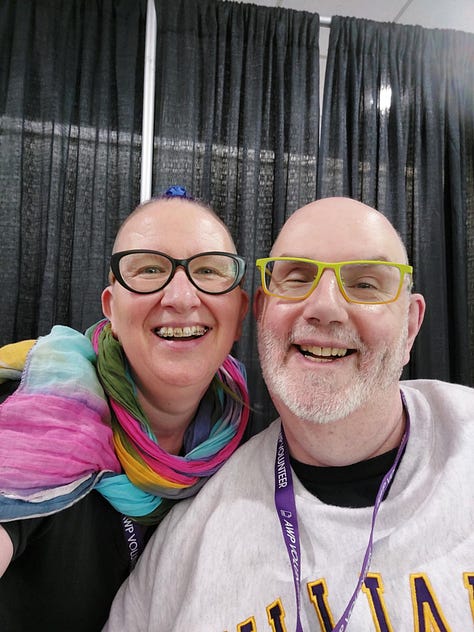
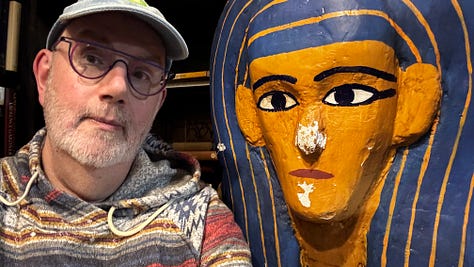
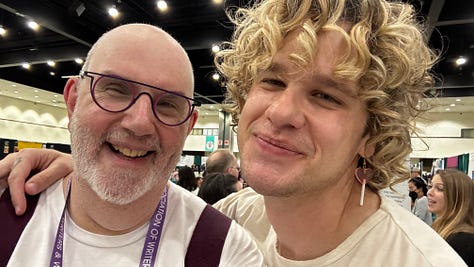
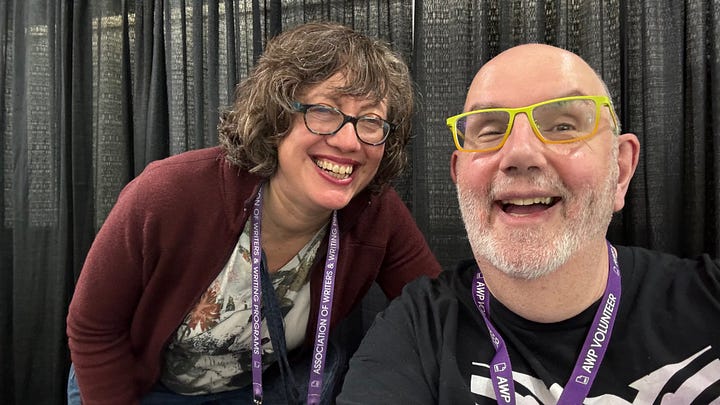
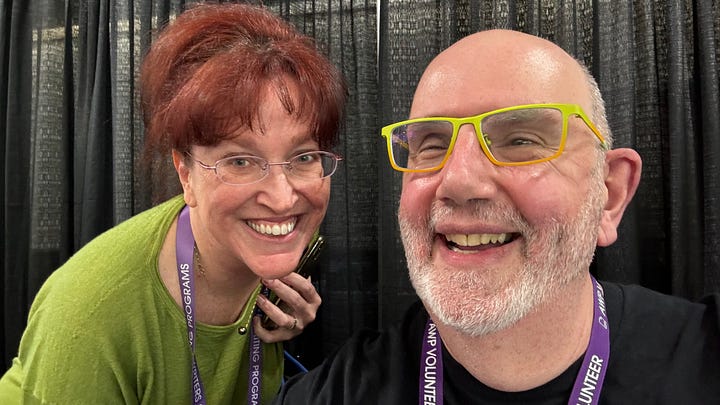
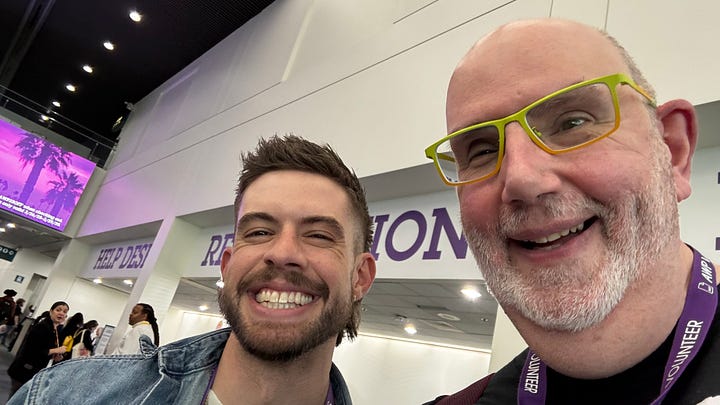
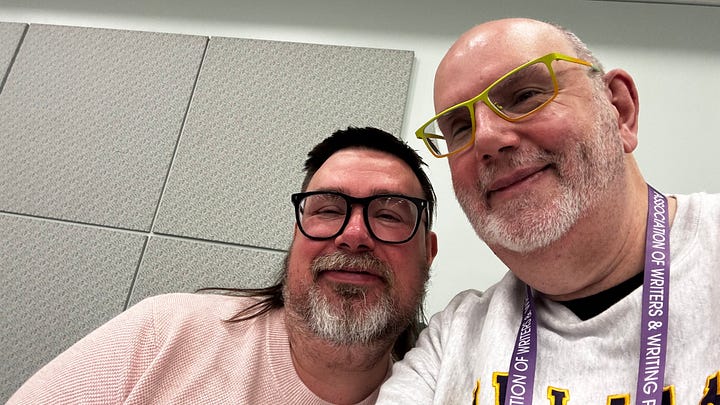
Afterglow
I exist in a strange paradox, post-AWP.
I’m writing two essays about depression and anxiety—one is how the cocktail of medications I took years ago, designed to treat my symptoms, ended up exacerbating them, and one is about how two disparate events, my father’s death in 1980 and my return to the United States in 2015, inform my understanding of depression and anxiety.
And yet, at the same time, I feel euphoric.
AWP offered a visceral reminder of the power of (queer) community, a reminder that continues to buoy me, knowing that there are so many people whose work I celebrate and who celebrate me (and my work). Spending a few days away from my husband also reminded me of how much I love him and how wonderful I feel when he’s near me. Now that AWP is over, I am thinking about my May trip to Japan—the people Hiro and I want to see, the places we want to visit, and the neighborhoods we want to consider for a future home purchase. I’m bathing in oxytocin, in spite of, or perhaps merely to spite, the ongoing shitshow that is life under Orange Julius.
I hope you claim your joys and hopes, too.





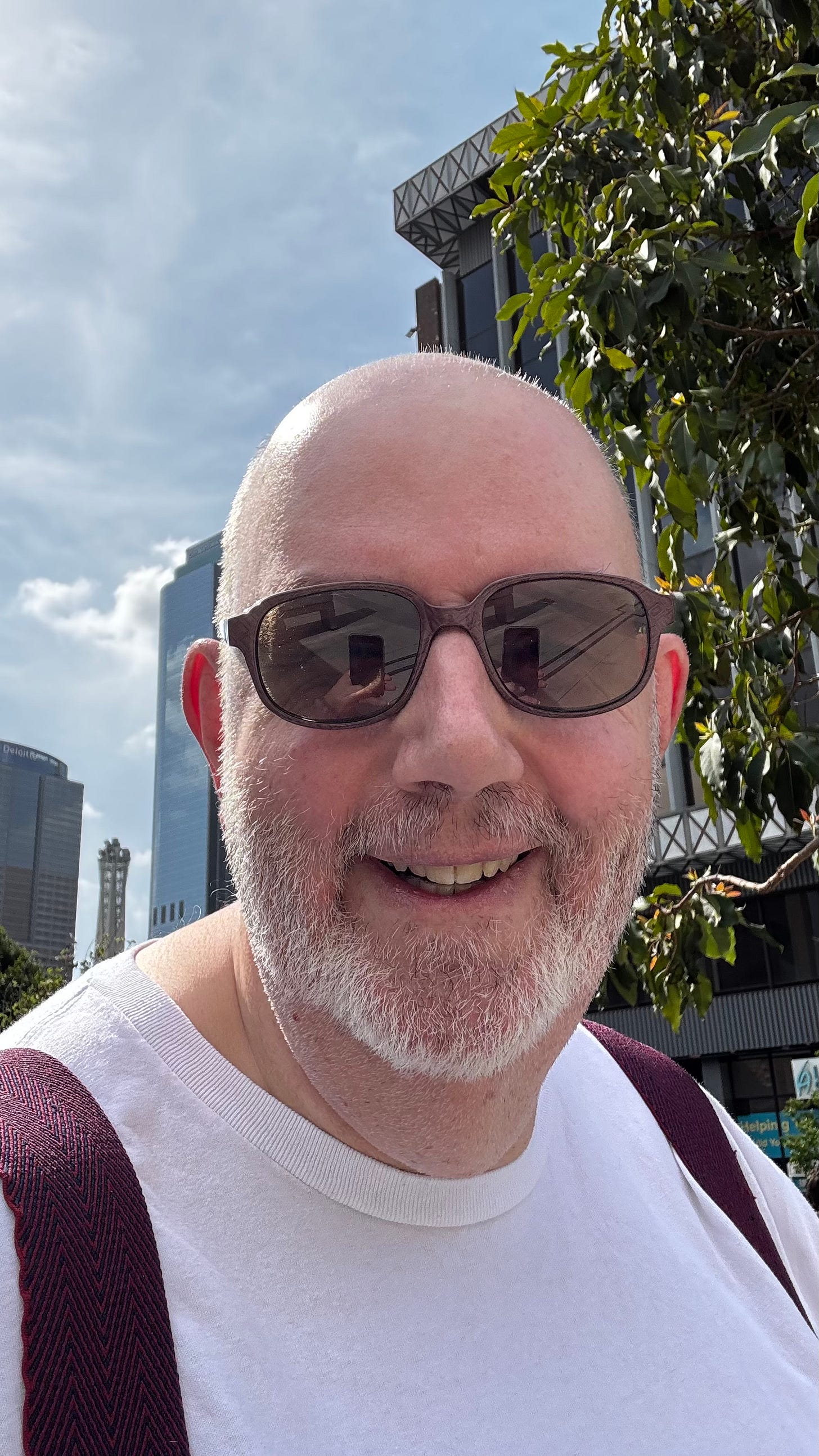
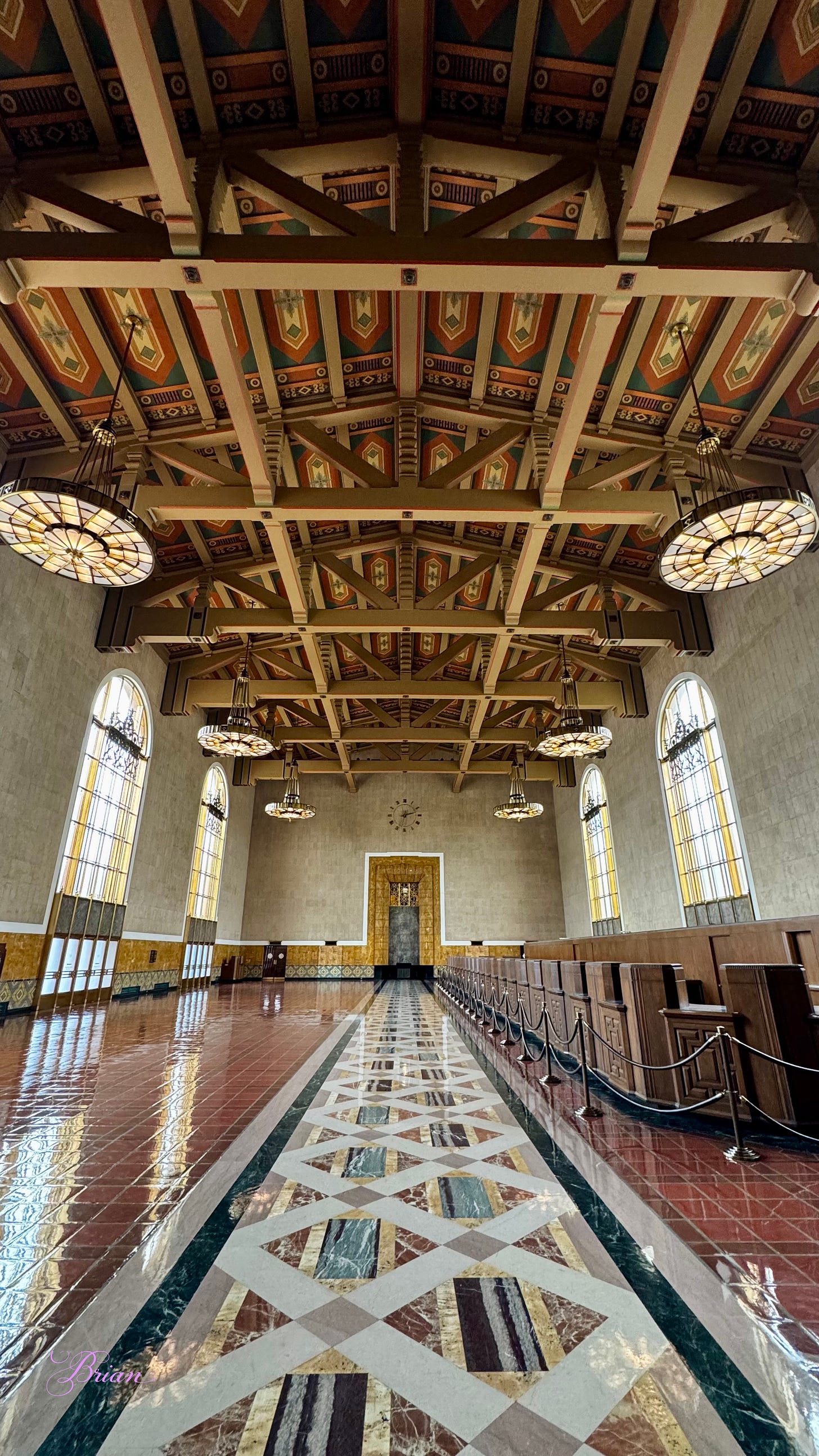
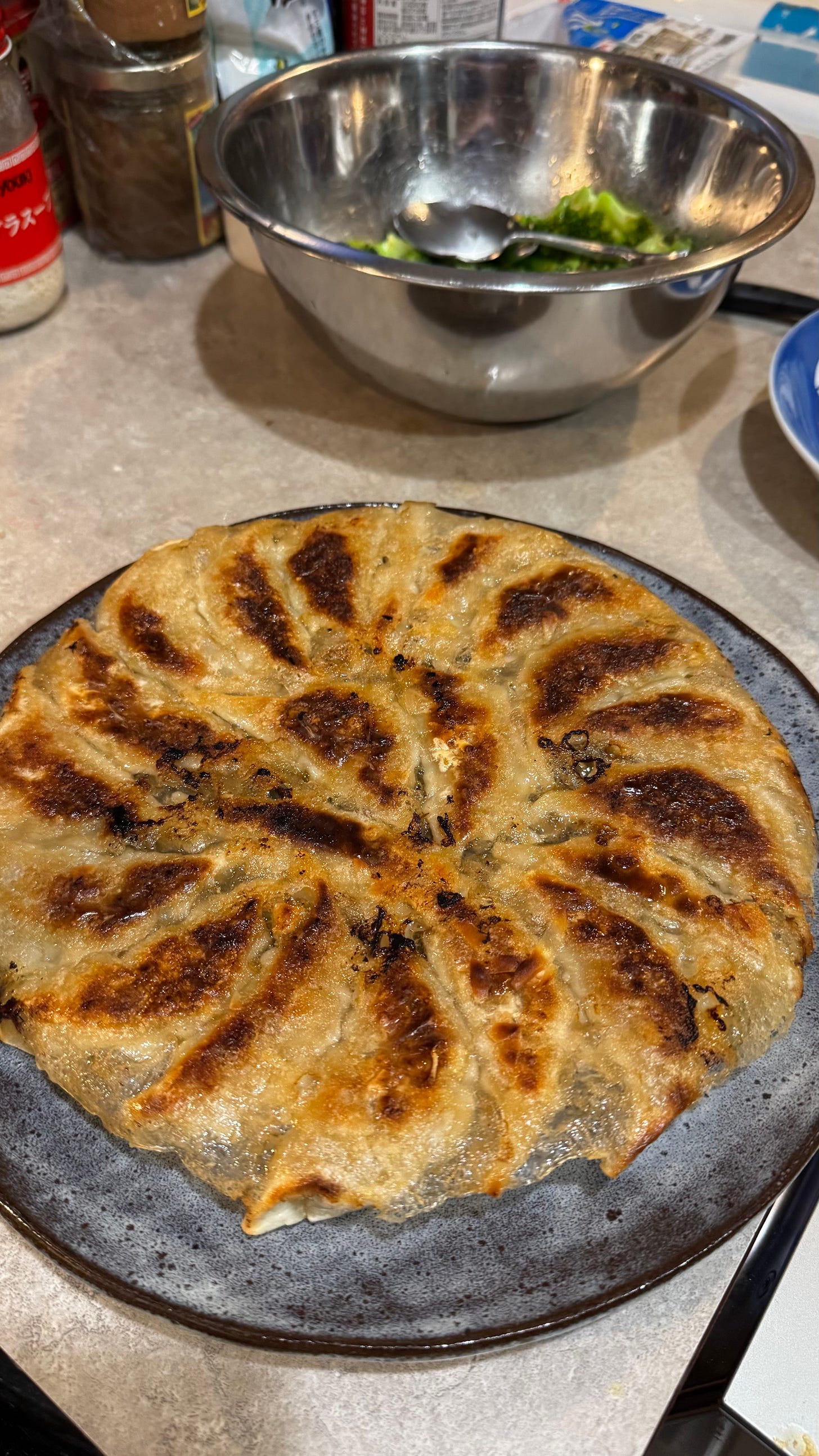
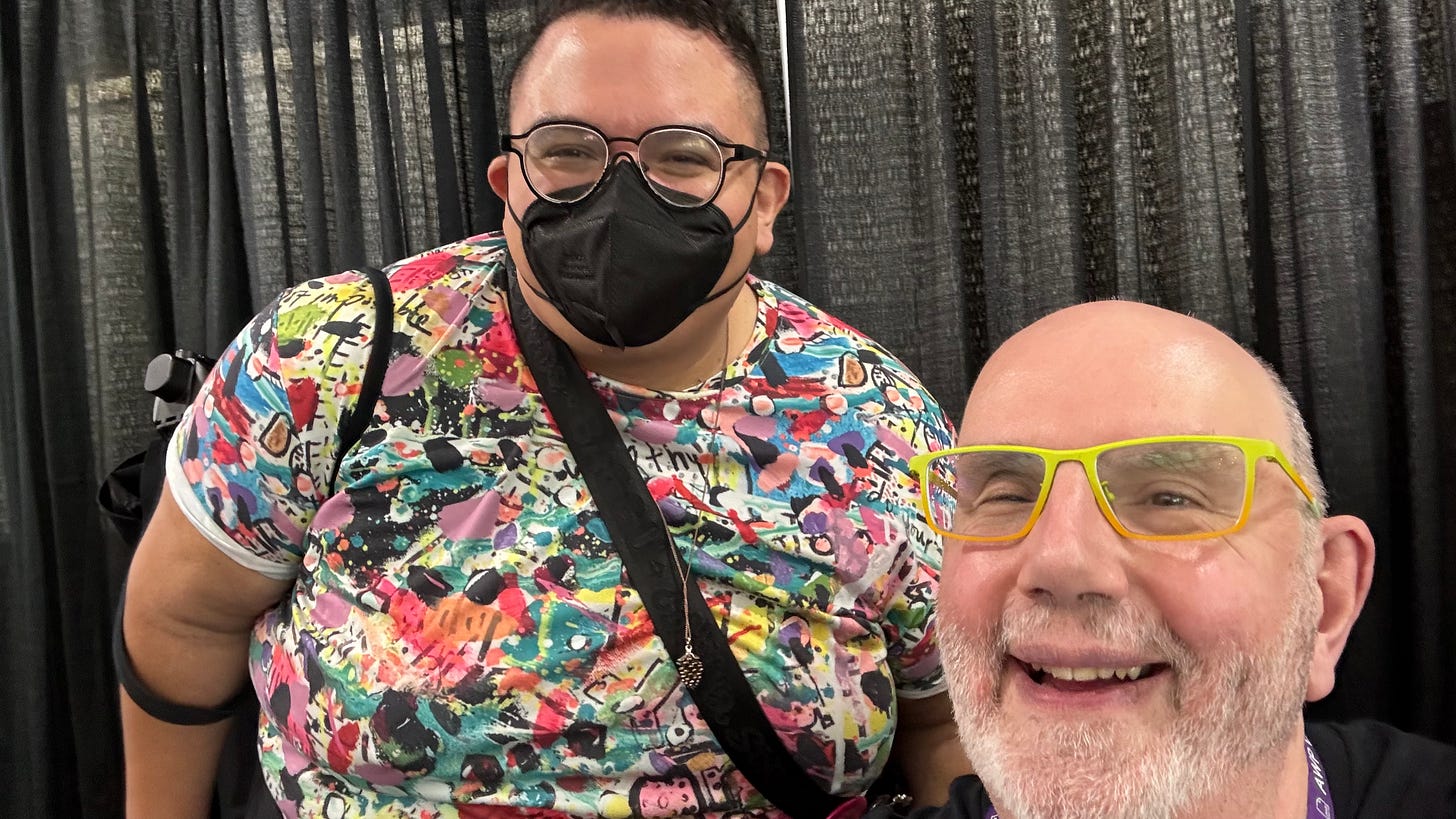
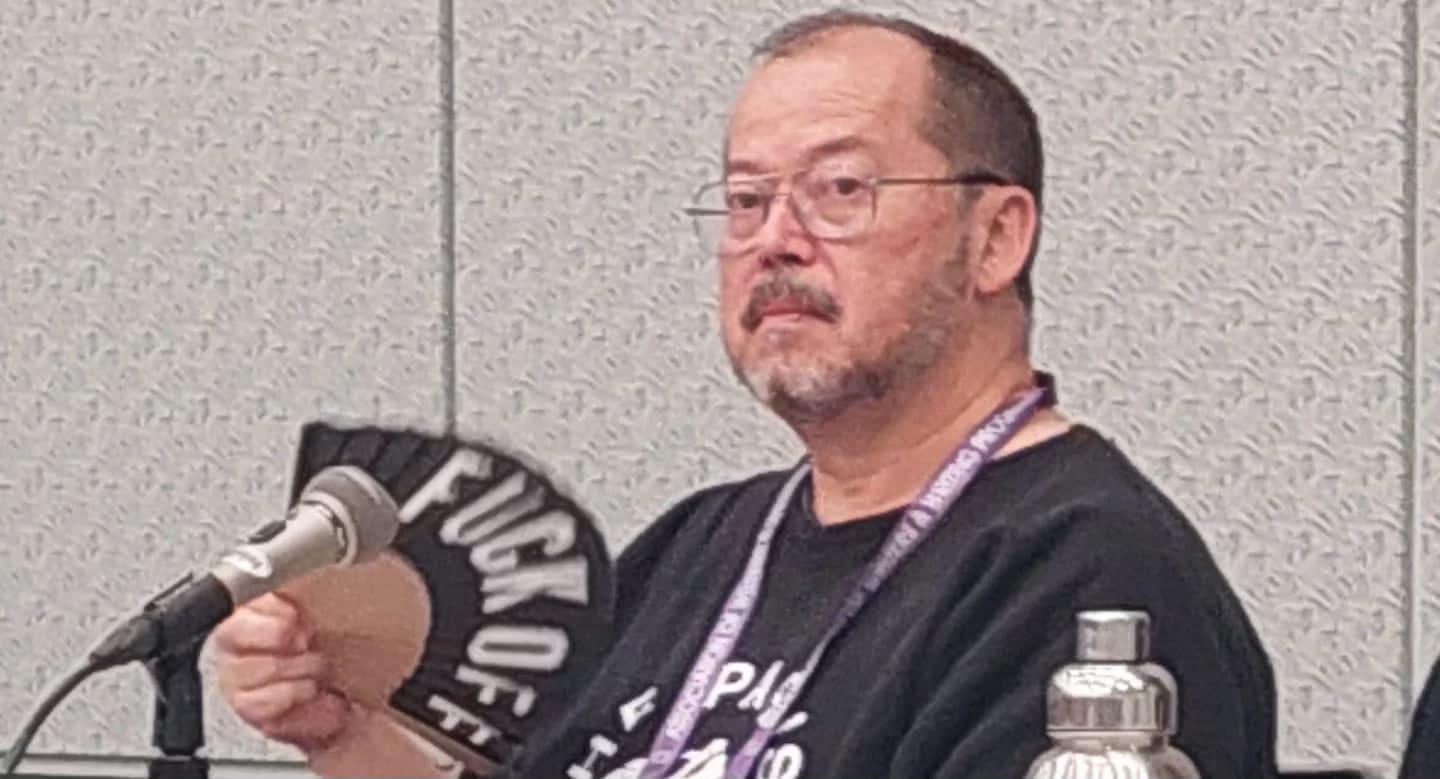

I'm happy to read the event went well and that you found some queer community to connect with! Speaking of which, have you ever heard of We Create Space? I've met them last year through a queer community networking online event, and it was quite a nice experience.
So glad the panel and the fan could be there for you!